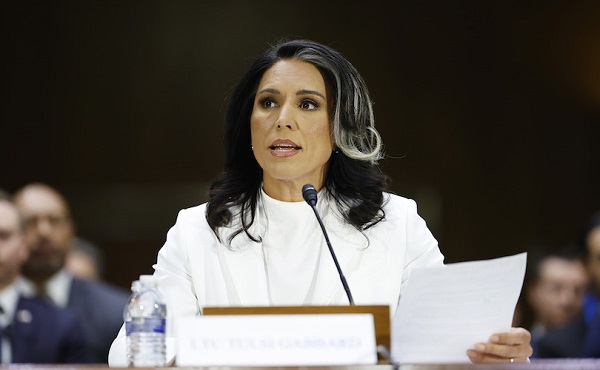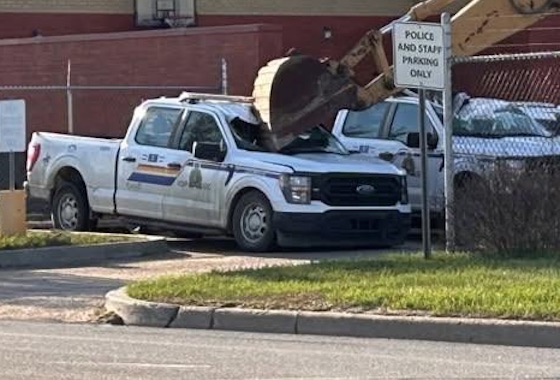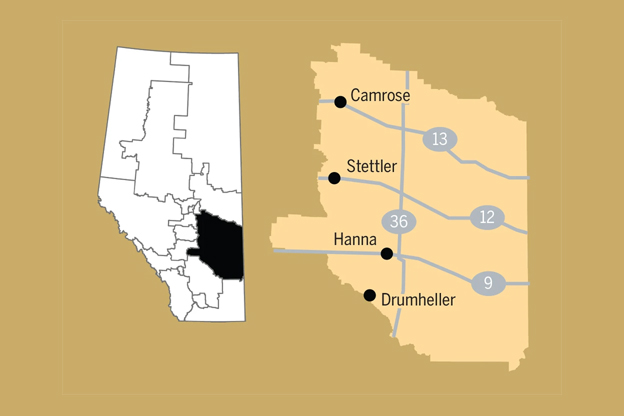Uncategorized
Man charged in mail-bomb plot is a Florida Trump supporter

WASHINGTON — Federal authorities have captured a Florida man with a criminal history and a
Justice Department officials on Friday announced five federal charges against Cesar Sayoc, 56, of Aventura, Florida, and revealed that DNA and a fingerprint found on an envelope package helped them identify the suspect after a five-day, coast-to-coast investigation. Even as he was arrested and charged, investigators scrutinized new suspicious packages believed to be tied to his plot.
FBI officials did not disclose a motive, although Attorney General Jeff Sessions suggested politics may have played a role, noting Sayoc appeared to be a “partisan.” Those who saw him in the
Sayoc’s social media profiles portray a deeply disaffected conservative who trafficked in online conspiracy theories, parody accounts and name-calling. He called a Florida school shooting survivor a “fake
An amateur body builder and former stripper who once spent time on probation for a bomb threat charge, Sayoc first registered as a Republican voter just ahead of the March 2016 Republican primary and quickly identified himself as a proud Trump supporter, tweeting and posting on Facebook videos that appear to show him at Trump rallies.
He appeared to be to living in his van, showering on the beach or at a local fitness
Sayoc’s arrest Friday was a major breakthrough in the nationwide manhunt following the discovery of explosive devices — none of which detonated — addressed to prominent Democrats and other frequent targets of conservative ire, including former President Barack Obama, former
The mail bombs, coming barely a week before major midterm elections, sparked a heated national conversation about the hard-edged political climate and Trump’s role in fanning the flames. The president as branded the media the “enemy of the people” and hurled harsh, personal insults at others targeted in the plot.
Shortly after Sayoc was detained, Trump declared that “we must never allow political violence to take root in America” and that Americans “must unify.”
Speaking later to reporters Friday evening before leaving for a political rally in North Carolina, said he knows Sayoc supported him but that he himself “bears no blame.” Hours earlier Trump had complained via tweet that “this ‘bomb’ stuff” was taking attention away from the upcoming election and that critics were wrongly blaming him.
FBI and police officials worked swiftly to untangle clues this week as the packages mounted, sometimes several in the same day.
The big break came when a fingerprint found on one of the packages, intended for California Rep. Maxine Waters, matched a fingerprint of Sayoc’s on file with Florida authorities. A DNA sample from a device intended for Obama similarly matched the suspect’s DNA, the FBI said.
An additional clue: Misspellings from his online posts matched mistakes found on the packages, according to an 11-page criminal complaint that included the formal charges of threatening former presidents and transporting explosives across state lines.
Some packages included photographs of the intended recipients marked with a red “x,” the FBI said. The packages contained timers and batteries, but were not rigged to explode upon opening. Officials were uncertain whether the devices were poorly designed or never intended to cause physical harm.
Authorities noted that they included “energetic material.” A footnote to the charging document said such explosive material “gives off heat and energy through a rapid exothermic reaction when initiated by heat, shock or friction.”
“These are not hoax devices,” FBI Director Chris Wray said.
Sayoc was arrested near an auto parts store in Plantation, Florida, north of Miami. Across the street, Thomas Fiori, a former federal law enforcement officer, said he saw about 50 armed officers swarm a man standing outside a white van. They ordered him to the ground, Fiori said, and he did not resist.
“He had that look of, ‘I’m done, I surrender,'” Fiori said.
Sayoc appears to have been living on the margins, regularly running into trouble with the law and struggling to make ends meet. He was repeatedly arrested for theft in the 1990s, faced felony charges of possession of anabolic steroids in 2004 and was convicted of grand theft in 2014. In 2002, he served a year of probation for a felony charge of threatening to throw or place a bomb.
His lawyer in that case said the charge stemmed from a heated conversation with a Florida utility representative.
Ronald Lowy, a Miami attorney, said Sayoc showed no ability at the time to back up his threat with any bomb-making expertise.
Sayoc had $4,175 in personal property and more than $21,000 in debts when filed for bankruptcy in 2012. “Debtor lives with mother, owns no furniture,” his lawyer indicated in a property list.
He had been an amateur body builder. More recently he was seen at an LA Fitness in Aventura, regularly showering at the gym but not working out, said Edgar Lopez, 48, a therapist who works out at the gym.
Marc Weiss saw Sayoc nearly every morning at 6 a.m. for the last four or five months
“I’ve seen the guy maybe 80 times and I never said a word to him because I had a feeling he was a little off,” said Weiss, a 56-year-old building superintendent who has lived in the
Sayoc’s political awakening appears to have coincided with Trump’s rise. He registered to vote in Florida in March 2016 and has voted early since, records show.
Documents released Friday by the Broward County Sheriff’s Office show Sayoc reported in May 2015 that more than $40,000 in goods were stolen from his van and an attached trailer, including 11 pieces of Donald Trump-brand clothing valued at $7,150. Specifics are not included, but Trump has a line of suits, shirts, ties and accessories.
The report shows detectives were never able to confirm whether the theft actually happened, and no arrests were made.
Most of those targeted this week were past or present U.S. officials, but packages also were sent to actor Robert De Niro and billionaire George Soros. The bombs have been sent across the country — from New York, Delaware and Washington, D.C., to Florida and California, where Waters was targeted. They bore the return address of Florida Rep. Debbie Wasserman Schultz, the former chairwoman of the Democratic National Committee.
___
Associated Press writers Laurie Kellman, Ken Thomas, Jill Colvin, Michael Biesecker, Stephen Braun and Chad Day in Washington; Terry Spencer, Kelli Kennedy and Curt Anderson in Florida; Jim Mustian, Deepti Hajela, Tom Hays and Michael R. Sisak in New York and Raphael Satter in Paris contributed to this report.
___
For the AP’s complete coverage of the mail-bomb scare: https://apnews.com/PipeBombAttacks
Michael Balsamo, Eric Tucker And Colleen Long, The Associated Press
Uncategorized
Poilievre on 2025 Election Interference – Carney sill hasn’t fired Liberal MP in Chinese election interference scandal

From Conservative Party Communications
“Yes. He must be disqualified. I find it incredible that Mark Carney would allow someone to run for his party that called for a Canadian citizen to be handed over to a foreign government on a bounty, a foreign government that would almost certainly execute that Canadian citizen.
“Think about that for a second. We have a Liberal MP saying that a Canadian citizen should be handed over to a foreign dictatorship to get a bounty so that that citizen could be murdered. And Mark Carney says he should stay on as a candidate. What does that say about whether Mark Carney would protect Canadians?
“Mark Carney is deeply conflicted. Just in November, he went to Beijing and secured a quarter-billion-dollar loan for his company from a state-owned Chinese bank. He’s deeply compromised, and he will never stand up for Canada against any foreign regime. It is another reason why Mr. Carney must show us all his assets, all the money he owes, all the money that his companies owe to foreign hostile regimes. And this story might not be entirely the story of the bounty, and a Liberal MP calling for a Canadian to be handed over for execution to a foreign government might not be something that the everyday Canadian can relate to because it’s so outrageous. But I ask you this, if Mark Carney would allow his Liberal MP to make a comment like this, when would he ever protect Canada or Canadians against foreign hostility?
“He has never put Canada first, and that’s why we cannot have a fourth Liberal term. After the Lost Liberal Decade, our country is a playground for foreign interference. Our economy is weaker than ever before. Our people more divided. We need a change to put Canada first with a new government that will stand up for the security and economy of our citizens and take back control of our destiny. Let’s bring it home.”
Uncategorized
Canada Needs A Real Plan To Compete Globally

From the Frontier Centre for Public Policy
Ottawa’s ideological policies have left Canada vulnerable. Strategic action is needed now
As Canada navigates an increasingly complex geopolitical landscape, the next federal government must move beyond reflexive anti—Americanism regardless of its political leanings. Instead, Canada should prioritize national interests while avoiding unnecessary conflict and subservience.
The notion that Canada can stand alone is as misguided as the idea that it is only an economic appendage of the United States. Both perspectives have influenced policy in Ottawa at different times, leading to mistakes.
Rather than engaging in futile name-calling or trade disputes, Canada must take strategic steps to reinforce its autonomy. This approach requires a pragmatic view rooted in Realpolitik—recognizing global realities, mitigating risks, governing for the whole country, and seizing opportunities while abandoning failed ideologies.
However, if Washington continues to pursue protectionist measures, Canada must find effective ways to counteract the weakened position Ottawa has placed the country in over the past decade.
One key strategy is diversifying trade relationships, notably by expanding economic ties with emerging markets such as India and Southeast Asia. This will require repairing Canada’s strained relationship with India and regaining political respect in China.
Unlike past Liberal trade missions, which often prioritized ideological talking points over substance, Canada must negotiate deals that protect domestic industries rather than turning summits into platforms for moral posturing.
A more effective approach would be strengthening partnerships with countries that value Canadian resources instead of vilifying them under misguided environmental policies. Expand LNG exports to Europe and Asia and leverage Canada’s critical minerals sector to establish reciprocal supply chains with non-Western economies, reducing economic reliance on the U.S.
Decades of complacency have left Canada vulnerable to American influence over its resource sector. Foreign-funded environmental groups have weakened domestic energy production, handing U.S. industries a strategic advantage. Ottawa must counter this by ensuring Canadian energy is developed at home rather than allowing suppressed domestic production to benefit foreign competitors.
Likewise, a robust industrial policy—prioritizing mining, manufacturing, and agricultural resilience—could reduce dependence on U.S. and Chinese imports. This does not mean adopting European-style subsidies but rather eliminating excessive regulations that make Canadian businesses uncompetitive, including costly domestic carbon tariffs.
Another key vulnerability is Canada’s growing military dependence on the U.S. through NORAD and NATO. While alliances are essential, decades of underfunding and neglect have turned the Canadian Armed Forces into little more than a symbolic force. Canada must learn self-reliance and commit to serious investment in defence.
Increasing defence spending—not to meet NATO targets but to build deterrence—is essential. Ottawa must reform its outdated procurement processes and develop a domestic defence manufacturing base, reducing reliance on foreign arms deals.
Canada’s vast Arctic is also at risk. Without continued investment in northern sovereignty, Ottawa may find itself locked out of its own backyard by more assertive global powers.
For too long, Canada has relied on an economic model that prioritizes federal redistribution over wealth creation and productivity. A competitive tax regime—one that attracts investment instead of punishing success—is essential.
A capital gains tax hike might satisfy activists in Toronto, but it does little to attract investments and encourage economic growth. Likewise, Ottawa must abandon ideological green policies that threaten agri-food production, whether by overregulating farmers or ranchers. At the same time, it must address inefficiencies in supply management once and for all. Canada must be able to feed a growing world without unnecessary bureaucratic obstacles.
Ottawa must also create an environment where businesses can innovate and grow without excessive regulatory burdens. This includes eliminating interprovincial trade barriers that stifle commerce.
Similarly, Canada’s tech sector, long hindered by predatory regulations, should be freed from excessive government interference. Instead of suffocating innovation with compliance mandates, Ottawa should focus on deregulation while implementing stronger security measures for foreign tech firms operating in Canada.
Perhaps Ottawa’s greatest mistake is its knee-jerk reactions to American policies, made without a coherent long-term strategy. Performative trade disputes with Washington and symbolic grandstanding in multilateral organizations do little to advance Canada’s interests.
Instead of reacting emotionally, Canada must take proactive steps to secure its economic, resource, and defence future. That is the role of a responsible government.
History’s best strategists understood that one should never fight an opponent’s war but instead dictate the terms of engagement. Canada’s future does not depend on reacting to Washington’s policies—these are calculated strategies, not whims. Instead, Canada’s success will be determined by its ability to act in the interests of citizens in all regions of the country, and seeing the world as it is rather than how ideological narratives wish it to be.
Marco Navarro-Génie is the vice president of research at the Frontier Centre for Public Policy. With Barry Cooper, he is co-author of Canada’s COVID: The Story of a Pandemic Moral Panic (2023).
-

 COVID-192 days ago
COVID-192 days agoStudy finds nearly half of ‘COVID deaths’ had no link to virus
-
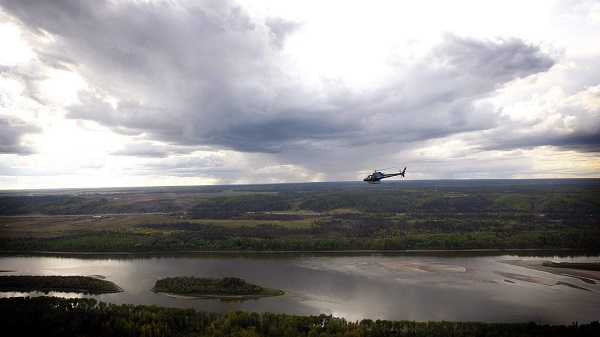
 Alberta2 days ago
Alberta2 days agoEnergy projects occupy less than three per cent of Alberta’s oil sands region, report says
-

 Energy2 days ago
Energy2 days agoOil tankers in Vancouver are loading plenty, but they can load even more
-

 Alberta2 days ago
Alberta2 days agoCharges laid in record cocaine seizure
-

 2025 Federal Election1 day ago
2025 Federal Election1 day agoCarney says Liberals won’t make voting pact with NDP
-
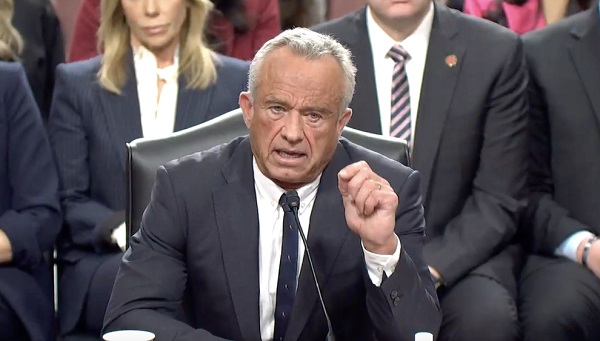
 Autism1 day ago
Autism1 day agoNIH, CMS partner on autism research
-

 Energy2 days ago
Energy2 days agoCarney’s energy superpower rhetoric falls flat without policy certainty
-
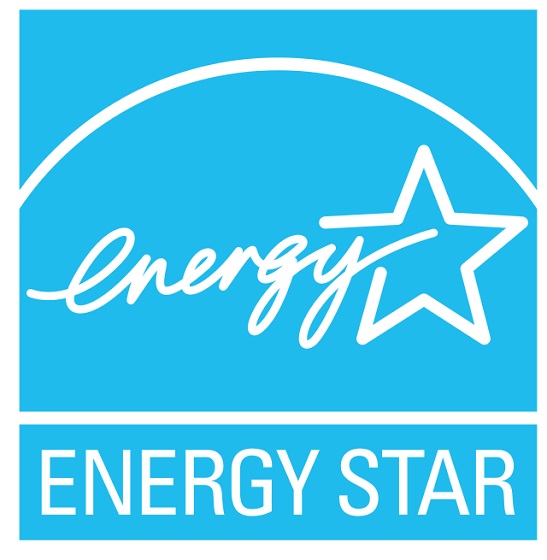
 Business1 day ago
Business1 day agoEPA to shut down “Energy Star” program
